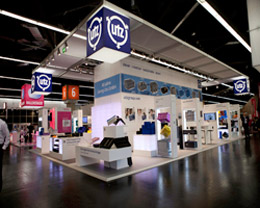The Scores Of Americans Without Bank Accounts
Even while more and more people get access to fundamental monetary solutions, a big part associated with the populace continues to be financially invisible.
The amount of US families without a banking account dropped to about 9 million in 2015, the cheapest price on record considering that the Federal Deposit Insurance Corporation began collecting data in ’09. Nevertheless, around 24 million households are considered underbanked, and thus they’ve checking accounts yet still depend on alternative services—such as pawn shops, check-cashing operations, and payday or auto-title loans—for their credit and money requirements. And that number, a brand new report discovers, hasn’t improved much at all into the previous couple of years, meaning that tens of an incredible number of Americans nevertheless challenge without use of fundamental economic solutions.
Americans with restricted usage of banking that is traditional credit services (or no access after all) have actually very long been over looked in america, despite collectively getting back together one or more quarter of all of the households. It was only seven years back that the FDIC also began performing surveys that are bi-annual regulate how big the people had been and whether or otherwise not bank accessibility ended up being improving. An evergrowing knowing of the interest that is high and dangerous financial obligation rounds that numerous Us Americans face once they do not have other resources has placed stress on regulators to generate improved ways to both protect and supply for many customers.
Around 7 % of all households don’t have a banking account, down from about 7.7 per cent in 2013, based on the FDIC. The absolute most typical explanation families cited wasn’t having sufficient money to open and maintain a checking account at a main-stream bank. It’s no real surprise, then, that about 50 % regarding the decrease into the underbanked populace over days gone by couple of years ended up beingn’t due to alterations in the banking industry, but because some households started making more. This permitted them to start a merchant account and keep one open within the real face of month-to-month upkeep or overdraft charges.
The 9 million households that don’t have bank reports depend mainly on money and, increasingly, prepaid debit cards, the report shows. Both of these choices have major downsides. Utilizing money with out a bank account means that individuals have actually restricted alternatives for spending, monitoring, and safeguarding their cash. And prepaid debit cards happen proven to include nebulous language that may disguise the charges, charges, and restricted appropriate options that users could be agreeing to. The FDIC additionally unearthed that households that felt frustrated about obtaining credit from banking institutions—for concern about being rejected—were more likely to make to alternate loan providers, such as for example payday or auto-title operations. And households which had formerly been rejected by banking institutions had been additionally prone to look to alternate loan providers, whoever prices in many cases are greater and whose conditions and terms in many cases are less lenient. Among the list of unbanked, over fifty percent of participants said that conventional banking institutions weren’t at all thinking about serving families like theirs.
The reality that some feel banks aren’t thinking about serving their communities is unpleasant but unsurprising. The underbanked population is mainly made up of Americans that are bad, black colored, or Hispanic. Numerous have actuallyn’t completed school that is high university. They are exactly the same populations that the banking that is american has willfully alienated for generations through tangible policies such as for instance redlining and subprime-credit targeting. One of several FDIC respondents’ many commonly reported reasons behind avoiding banks—aside from maybe not having enough money—was they didn’t trust the bank system.
While there is progress into the efforts to tackle bad banking practices—with the buyer Financial Protection Bureau issuing guidelines how payday loan providers and prepaid-debit-card organizations more info here can operate—few safe, mainstream options have actually arisen to replace the high priced and opaque services that so numerous families depend on. That produces a dangerous space between the solutions presently given by old-fashioned banking institutions as well as the real requirements of tens of an incredible number of People in the us.
 Zurück zur Artikelübersicht
Zurück zur Artikelübersicht
















Schreibe einen Kommentar
Du musst angemeldet sein, um einen Kommentar abzugeben.